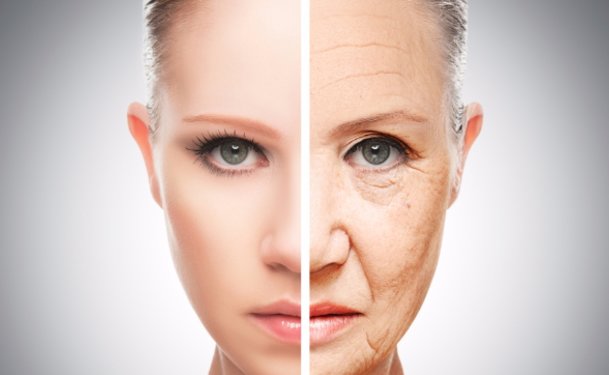Wrinkles are the lines and creases that form in your skin. Some wrinkles can become deep crevices or furrows and may be especially noticeable around your eyes, mouth and neck.
Wrinkles are caused by a combination of factors — some you can control, others you can't:
Age. As you get older, your skin naturally becomes less elastic and more fragile. Decreased production of natural oils dries your skin and makes it appear more wrinkled.
Fat in the deeper layers of your skin diminishes. This causes loose, saggy skin and more-pronounced lines and crevices.
Exposure to ultraviolet (UV) light. Ultraviolet radiation, which speeds the natural aging process, is the primary cause of early wrinkling. Exposure to UV light breaks down your skin's connective tissue — collagen and elastin fibers, which lie in the deeper layer of skin (dermis).
Without the supportive connective tissue, your skin loses strength and flexibility. Skin then begins to sag and wrinkle prematurely.
- Smoking. Smoking can accelerate the normal aging process of your skin, contributing to wrinkles. This may be due to changes in the blood supply to your skin.
- Repeated facial expressions. Facial movements and expressions, such as squinting or smiling, lead to fine lines and wrinkles. Each time you use a facial muscle, a groove forms beneath the surface of the skin. And as skin ages, it loses its flexibility and is no longer able to spring back in place. These grooves then become permanent features on your face.
Some treatments a dermatologist might recommend for wrinkles include:
- prescription topical vitamin A retinoids
- prescription topical antioxidants and collagen
- laser skin resurfacing
- light source and radiofrequency treatments
- chemical peel
- dermabrasion or micro dermabrasion
- Botox
- soft-tissue (dermal) fillers
- skin-tightening techniques, such as HIFU
- facelift surgery
- Plasma
- RF Needling



